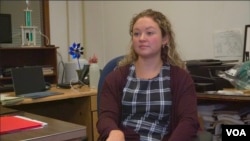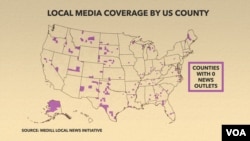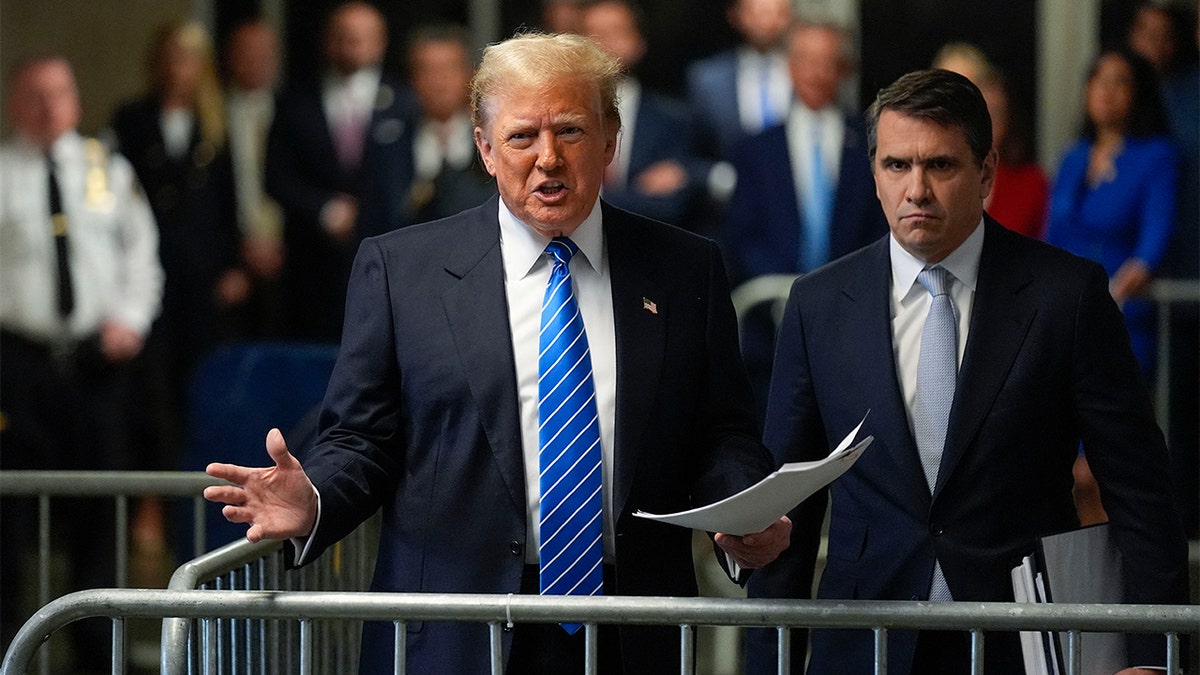
Jonathan Salant likes to collect things: bobbleheads of presidents and celebrities, campaign buttons, nearly 40 years of press passes.
But most of all, he likes to collect stories.
One of his favorites is from 2023, when several members of the New Jersey congressional delegation advocated for him to keep his job after the Star-Ledger, a Newark-based paper, had laid him off, leaving the Garden State without a reporter in Washington assigned to the Capitol beat.
The story of local news layoffs has been repeating across the U.S. for nearly 20 years, as financial hardships in the industry have left more and more communities without a watchdog in the nation's capital.
That loss, Salant said, is bad news for democracy.
"The public are the ones that are the losers because there's nobody keeping track of their elected officials," he said.
Now heading the Capitol Hill beat for Pennsylvania's Pittsburgh Post-Gazette with one other colleague, Salant is a rarity: a Washington-based reporter covering national politics for a local news outlet. About two decades ago, hundreds of reporters like him were working in the capital. Now only about 60 remain, according to the Regional Reporters Association.
They have become "an endangered species, and the consequences for communities across the country are huge," said Tim Franklin, who heads Northwestern University's Medill Local News Initiative.
VOA asked several Washington beat reporters for local news outlets what effect, if any, the shrinking coverage would have on the country.
Although they hail from cities as geographically and demographically different as Atlanta, San Francisco, and Spokane, Washington, all had the same reply: Having fewer reporters on the ground in Washington means less accountability for lawmakers and a greater disconnect between Americans, their nation's capital, and the decisions made there that affect them the most.
In this presidential election year — a time of growing partisanship in Washington politics and declining trust in the media — those concerns are particularly pronounced.
It's been difficult to see fewer reporters keeping tabs on elected officials, said Sabrina Eaton, who has covered the Washington beat for Cleveland's Plain Dealer newspaper since 1994. Eaton estimated that Ohio had around 20 reporters in Washington when she started. Now, she said, she's the only one.
"If nobody is there to let people know what their members of Congress are doing, I think that's a tragedy," she said.
The decline in Washington-based regional reporters mirrors a broader trend in the local news industry. A 2023 report from the Medill Local News Initiative found that the United States has lost nearly one-third of its newspapers since 2005.
Financial challenges are behind many of the closures. And when local news outlets begin to struggle, Washington correspondents are often among the first let go, the reporters who spoke with VOA said.
"All of these cutbacks are little nibbles at the edge of democracy," said Margaret Patterson, a journalism professor at Duquesne University in Pittsburgh and a former reporter for the now-defunct Pittsburgh Press.
Having a reporter in Washington helps Pittsburgh's residents engage in national politics in a way that can't be substituted, she said.
Sense of duty
For Tia Mitchell, the Washington correspondent for the Atlanta Journal-Constitution, being the only reporter in the capital focused on Georgia full time is a big responsibility.
"There's so much to cover from a Georgia angle. And to me, my responsibility is doing as much as I can," Mitchell told VOA.
She just finished recording a podcast in her closet where, she said, the audio is better. It's one of several ways she tries to keep her audience informed.
"I want the people back home in Georgia to say, 'I follow the AJC because it helps me know what's going on, helps me know what my elected officials are doing. It helps me make more informed decisions at the polls,'" she said.
For Mitchell, that included covering the January 5, 2021, Georgia Senate runoffs, whose winners, Jon Ossoff and Raphael Warnock, handed Democrats narrow control of the U.S. Senate. A day later, she was reporting from Congress during the January 6 insurrection.
"Those two days were probably the most monumental days in my career and solidified the importance of Georgia but also, I would say, the importance of democracy," she said.
With both Georgia and Pennsylvania being swing states, audiences will rely on Mitchell and Salant this election year to provide information on local and national candidates' stances on the economy, immigration, agriculture, social welfare and other issues.
Mitchell's and Salant's colleagues rely heavily on them, too. Back in Pittsburgh, City Hall reporter Hallie Lauer works closely with the Post-Gazette's desk in Washington.
"Our strategy is to balance the campaign trail stuff versus what the voters are thinking," Lauer said, sitting in the Pittsburgh City Hall press office.
She and Salant collaborate on topics relevant to Pittsburgh audiences, such as infrastructure and the natural gas industry. Subscribers access their reports in two weekly print editions or on the website.
When they spoke with VOA this spring, their paper and union were locked in a stalemate over labor conditions.
Still, the Post-Gazette's audience is concentrated in southwestern Pennsylvania, and no other outlets in the state have correspondents in Washington, they said.
"I worry about the rest of the state," Lauer said.
News deserts
Regions without dedicated local news coverage are known as news deserts. As of last year, 203 U.S. counties had no local news outlets, according to the Medill Local News Initiative. More broadly, more than half of American counties have no or limited access to reliable local reporting.
And only around two dozen states have regional reporters accredited by the Senate to cover Congress, according to data from the U.S. Senate Press Gallery.
"We really can't have a functional, effective engagement in the democratic process without news," said Duquesne University's Patterson. "We should care because there's a veil behind which the public sector is operating when there's not a watchdog paying attention."
Shira Stein, the Washington correspondent for the San Francisco Chronicle, agrees.
"What's at stake is you lose this accountability mechanism," she said. "Even if you're back in California, it's important to allow people to feel that connection and that understanding of what's going on nationally that could affect them."
National outlets often report too broadly for local communities to discern how policy may impact them, Stein said.
Communities that have lost their local news outlets can experience a range of negative outcomes. Several academic and media studies have shown that a decline in local news coverage contributes to a decline in civic engagement and trust in the media and an increase in polarization, government corruption and misinformation. And during an election year, those consequences can be even more severe, experts say.
Franklin, head of the Medill Local News Initiative, is concerned about how the loss of Washington-based reporters will contribute to partisanship.
"Regional reporters were cutting through the red and blue team jerseys to write about issues that should be nonpartisan," he said. "We're losing that ability."
During press briefings and interactions with lawmakers, these reporters often act as proxies for their audiences, another benefit that subscribers lose when a local news outlet cuts the Washington bureau from its budget.
"Unfortunately, when communities lose regional reporters, they lose representatives here at the Capitol, at the White House, who are asking the questions that matter most to those communities," said Washington correspondent Orion Donovan Smith of the Spokesman-Review, a newspaper based in Spokane, a city in the state of Washington.
According to Smith, he is the sole capital-based reporter not only for the state but also for the entire Pacific Northwest.
Audiences do have national media outlets to turn to for news. But, Smith said, "with respect to the New York Times and the Washington Post, they're not asking about Spokane."
Back at Salant's home in Maryland, the journalist is aware of how rare a job like his is these days. But still, he worries most about audiences across the country who don't have someone like him in Washington.
"I always say my job is to tell the public what their public officials are doing," Salant said. "The people who suffer are the people back home because there's nobody to keep an eye on their public officials."
Credits: Reporters: Liam Scott, Cristina Caicedo Smit; Lead Editor: Jessica Jerreat, Press Freedom Editor; Editor: Amy Reifenrath; Graphics/Artwork: Matt Houston





















